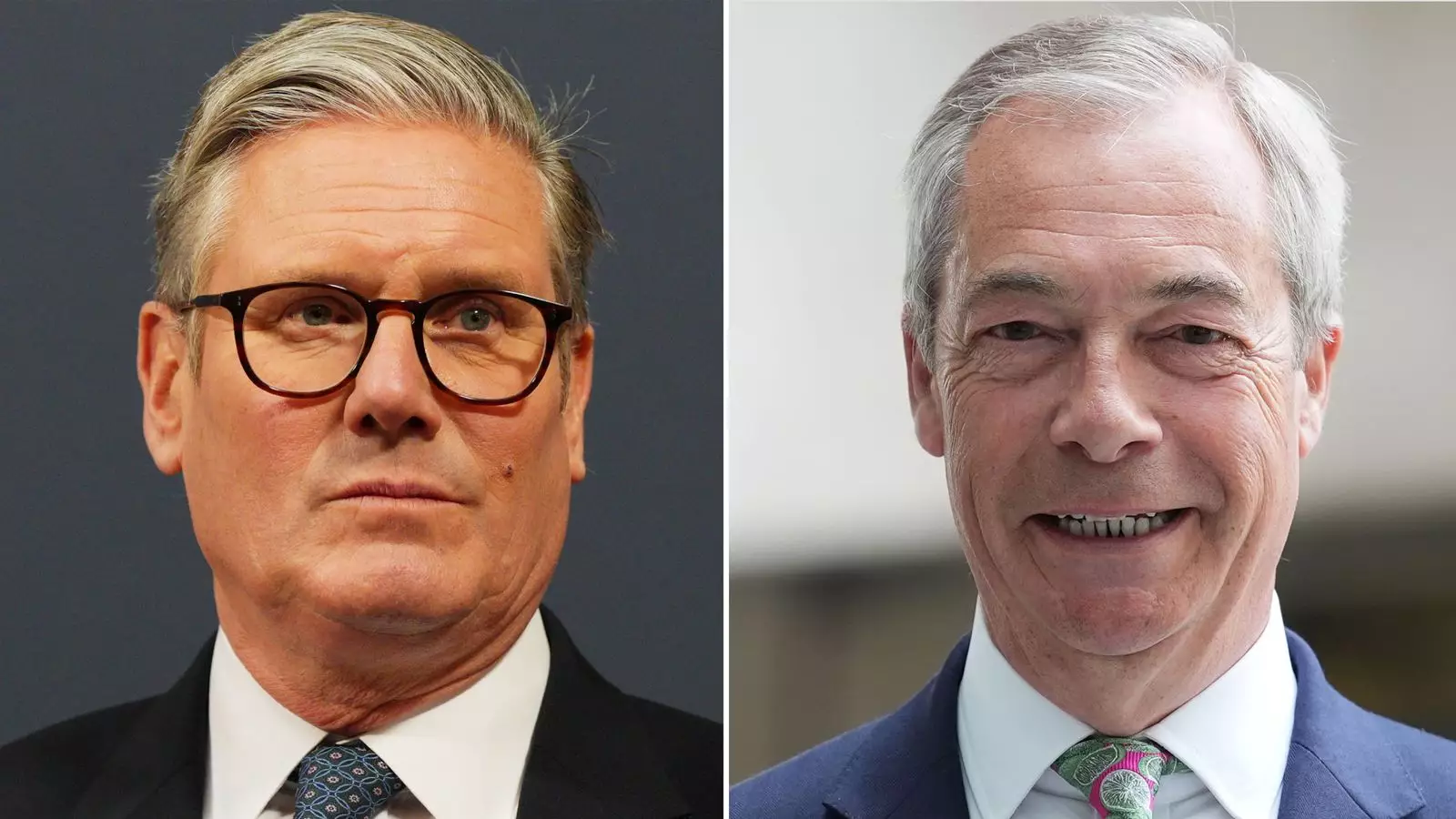Nigel Farage has been a perennial figure in British politics, often championing radical changes that promise free markets and less regulation. However, the latest suite of reforms he’s proposing stands to illustrate a perilous gamble that could ultimately destabilize the UK’s economy. His recent commitments to reverse cuts in winter fuel payments and eliminate the two-child benefit cap, coupled with ambitious income tax reductions, make for compelling rhetoric but lack any sustainable fiscal underpinning. It is this reckless abandon toward economic management that leads me to label Farage’s policies as a fantasy, reminiscent of the disastrous mini-budget proposed by Liz Truss that sent ripples through financial markets.
Costly Delusions: An Analysis
The Institute of Fiscal Studies has released troubling data suggesting that Farage’s aspiration to increase the personal allowance to £20,000 could herald an annual cost ranging from £50 billion to £80 billion. Such figures render his policies not just misguided, but potentially catastrophic. Starmer’s warning that Britain’s mortgages, bills, and rental payments could skyrocket under these plans isn’t mere hyperbole; it’s a grounded concern based on evidence from recent economic misadventures. In essence, Farage is proposing a fiscal house of cards, where massive tax cuts are pitched without a thoughtful account of how to offset the resultant loss in government revenue.
Two-Track Economy: A Gamble on the Future
The narrative being woven by Farage hinges largely on a simplistic idea: cut taxes and the economy will flourish. History tells a different tale. Truss’s tenure was characterized by budgetary chaos resulting from similar naïveté, quickly collapsing under the weight of rising interest rates and market skepticism. Calling what Farage envisions a “mad experiment” is not an exaggeration but a responsible observation. The idea that slashing services, such as asylum accommodation, somehow compensates for exorbitant tax cuts is reckless and devoid of substantial logic. It assumes that the economy operates in isolation, free from the pervasive connections between social welfare and economic stability.
A Battle Against Reality
The implications of Farage’s policies extend beyond mere financial numbers. They reflect a deep-seated misunderstanding of the realities faced by ordinary citizens. When he bets on spending “tens of billions on tax cuts” without a credible financial strategy, he effectively risks not just economic stability but the wellbeing of millions depending on essential state support. In underestimating the consequences of his proposals, Farage risks creating a world where the vulnerable shoulder the burden of his idealistic schemes. In contrast, Sir Keir Starmer’s push for fiscal responsibility aims to mend the rifts created by previous erratic governance.
The Call for Pragmatism in Leadership
During a recent visit to manufacturing workers in the North West, Starmer pointed out a crucial fact: “In opposition, we warned of Truss’s impending economic fallout, and she delivered.” This reflection isn’t merely a critique but a rallying call for responsible artistry in governance. The electorate’s confidence should be built on pragmatic solutions rather than grandiose ideals. In recent months, this shift has become even more pressing as Labour faces the palpable threat posed by Farage and his burgeoning party, Reform UK — a party that has seen alarming levels of support in local elections. Yet, succumbing to rash proposals as a countermove could lead Labour down the same rabbit hole as Truss.
Farage’s Dark Horse Status
Adding a layer of intrigue is the speculation around Farage’s potential ascent to prime ministerial power. Dominic Cummings, Boris Johnson’s former adviser, insinuated that with the right strategy, Farage could indeed make a significant leap into Number 10. This scenario, while unsettling, highlights a critical juncture for British politics. Voter sentiment is volatile, and while reform may be necessary, it cannot come at the expense of financial sustainability. The entrenched belief that radical, unfounded reforms can invert economic trends blinds us to the lessons history has taught.
In summation, Farage’s approaches usher in an era of profound uncertainty that threatens the foundational elements of the UK’s economic wellbeing. As we tread these turbulent waters, a resolute call for balanced governance is more urgent than ever.

Leave a Reply